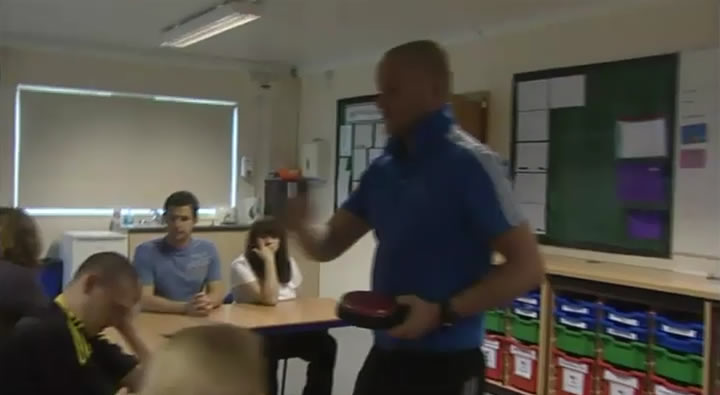Many behaviours 'challenge us' throughout our daily lives, so what do we mean when we say a child has "challenging behaviour"?
Identify the different sorts of behaviours that would challenge you in this video.

The term 'challenging behaviour' is a neutral description. It does not degrade the child.
No child should be judged by their behaviour, even though it may have very negative consequences.
Instead, there should be a 'no blame' response towards both adult and child. This approach:
- promotes examination of the purpose of the behaviour.
- draws attention to other factors that influence behaviour and can be changed, e.g. relationships, communication and interaction.
However, we have a duty of care to respond to challenging behaviour in order to protect children who display challenging behaviour and others around them.
Doing nothing is not an option!

Read this case study of Michael, who has Cri Du Chat Syndrome (CDCS), one
of the features of which is challenging behaviour, including hyperactivity
and aggressive and oppositional behaviour.
